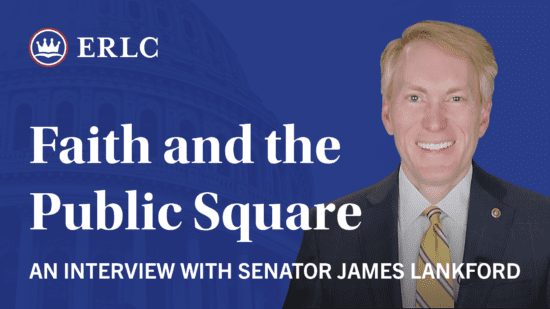On May 31, 1792, William Carey preached a sermon that has come to be called the deathless sermon because it changed the entire Christian world. Preaching from Isaiah 54:1-2, Carey declared that we must, “Expect great things from God” and “Attempt great things for God!” Radical things happened at that meeting—the Baptist Mission Society was formed, the modern missions movement was launched, and William Carey became its first missionary.
The radical experiment
In 2010, David Platt challenged the Church at Brook Hills to engage in “The Radical Experiment,” to spend a year praying for the world, reading the entire Bible, giving their money to those in need, spending time in a context beyond Birmingham, and building community. Platt later published the book Radical, which became a New York Times best seller.
Of course, the plan is radical in the sense that basic Christianity itself is revolutionary in a fallen world. Basic Christian discipleship is radical because of the propensity of believers in any culture, especially an affluent culture like America, to absorb into the world around rather than live as the counter-cultural outpost of the kingdom of Christ—the church. Platt’s call was to stop interpreting Christianity through the lens of the American dream, to live lives transformed by the gospel, and to interpret all of life determined to know nothing among anyone but Christ and him crucified.
“The Radical Experiment” was influential at the Church at Brook Hills, and through the book Radical and other resources, it was influential in countless evangelical churches. David Platt now serves as the head of the International Mission Board of the Southern Baptist Convention.
The critics of radical
However, the call to live radical, missional lives for Jesus has its evangelical critics. The loudest critic has been Anthony Bradley who is associate professor of theology and ethics at The King's College in New York City and serves as a research fellow at the Acton Institute for the Study of Religion and Liberty. Bradley is a gifted scholar, preacher, and public intellectual whose writings and ministry I have benefitted from and appreciate. He pulls no punches when he asserts, “Being a ‘radical,’ ‘missional’ Christian is slowly becoming the ‘new legalism.’ We need more ordinary God and people lovers” (Matt. 22:36-40). Bradley has been joined by others, like Michael Horton, whose new book’s cover looks a great deal like Radical’s cover. Horton’s book is titled Ordinary: Sustainable Faith in a Radical, Restless World (Horton acknowledges the similarities are purposeful in this Key Life interview).
Bradley sees himself as defending the type of college students he teaches and counsels who he says are “stressed and burnt out from the regular shaming and feelings of inadequacy if they happen to not be doing something unique and special.” He continues,
The sad result is that many young adults feel ashamed if they “settle” into ordinary jobs, get married early and start families, live in small towns, or as 1 Thessalonians 4:11 says, “aspire to live quietly, and to mind [their] affairs, and to work with [their] hands.” For too many Millennials their greatest fear in this life is being an ordinary person with a non-glamorous job, living in the suburbs, and having nothing spectacular to boast about.
Again, this was a well-intentioned attempt to address lukewarm Christians in the suburbs, but because it is primarily reactionary and does not provide a positive construction for the good life from God’s perspective, it misses “radical” ideas in Jesus’ own teachings like “love.”
Why is Christ’s command to love God and neighbor not enough for these leaders? Maybe Christians are simply to pursue living well and invite others to do so according to how God has ordered the universe.
Recently, Bradley tweeted, “Parents, teachers, youth workers please don't tell kids to ‘find your passion.’ You're setting them up for narcissism & clinical depression.” I share Bradley’s concern over neo-legalism and have no interest in an abstract, utopian higher-life spirituality that leaves Christians always striving but never really arriving. My whole ministry is devoted to calling people to an earthy spirituality that embraces the ordinariness and everydayness of life. I call my congregation to repent of thinking we can decide what the big moments in life are. God consistently meets us in the everyday like he met a woman walking a dusty road to get water at a well (John 4). I tell them that being themselves surrendered to Jesus is the most strategic thing they could be doing.
But that is the point where I think Bradley is talking over Platt instead of actually engaging what Platt is saying constitutes radical Christianity.
I think I know what Platt is saying, and I know what I am saying: radical Christianity is a call to walk in line with the gospel by loving God and neighbor. It seems to me that critics can be just as reactionary as they accuse David Platt of being. After all, is modifying Christianity with ordinary any different that modifying it with radical?
The danger of a new legalism
A call to love God and neighbor can certainly be contorted into a new legalism just as easily as a call to a radical life of missional living and following the revolutionary Jesus and his countercultural kingdom. It is equally true that a call to living as an ordinary Christian can be contorted and misshapen into nominal, golden-rule American dream Christianity that possesses no genuine gospel vitality.
I certainly understand Bradley’s concern over counseling students who have gotten on a destructive legalistic Christian performance treadmill (I have written about Why Legalistic Preaching Does Not Work here), but I can assure him that I have counseled vast numbers of Christians who have baptized Christianity in their pursuit of the ordinary American dream and came out clinically depressed, narcissistic, and disillusioned as well. Perhaps it is better to see both neo-legalism and nominalism as enemies to genuine spirituality and to conclude that a spirituality that is biblically radical will seek to live in light of the gospel in the daily and ordinary. In other words, taking up your cross and following Christ daily by loving God and your neighbor wherever you are.
The radically ordinary life
Radical is one of the best words I can think of to describe Jesus’s teaching in the Sermon on the Mount as he keeps asserting, “You have heard it said . . .but I say unto you.” When he finished teaching, Matthews records “the crowds were astonished at his teaching” (Matt 7:28). Platt and others are being taken to task for calling people to radical Christianity.
I do not think there is any other kind.
It is not the first time a young man with gospel passion was called out for pointing to the radical call of Christianity. William Carey spoke in a ministers meeting on September 30, 1785, and exhorted all in attendance to consider the radical responsibility they had to reach the whole world with the gospel. John Ryland Sr. spoke up and told Carey, “Young man, sit down! Sit down! You are an enthusiast. When God pleases to convert the heathen, He will do it without consulting you and me” Carey did not sit down and keep quiet. He spent 41 years in India for the sake of the gospel. At the end of his life he described his radical ministry in this way,
If one should think it worth his while to write my life, I will give you a criterion by which you may judge of its correctness. If he gives me credit for being a plodder, he will describe me justly. Anything beyond this will be too much. I can plod. I can persevere in any definite pursuit. To this I owe everything.
A radical gospel-centered Christianity that manifests itself in the ordinary plodding of daily life by loving God and neighbor. Radical Christianity is ordinary Christianity—two sides of the same coin. Pitting one against the other is an extraordinarily bad idea.









